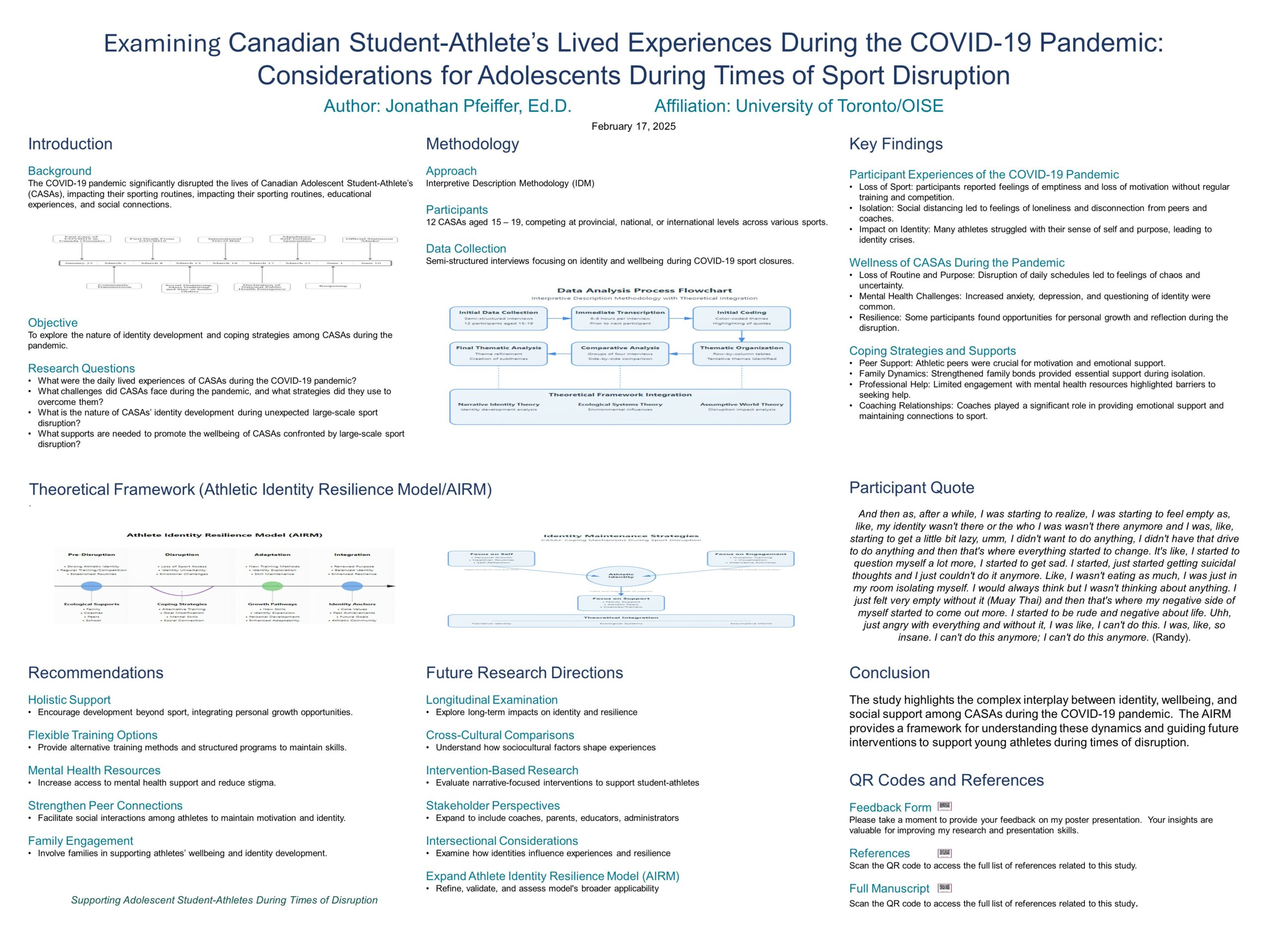Examining Canadian Student-Athlete’s Lived Experiences During the COVID-19 Pandemic: Considerations for Adolescents During Times of Sport Disruption
Poster Author(s):
Title: Examining Canadian Student-Athlete’s Lived Experiences During the COVID-19 Pandemic: Considerations for Adolescents During Times of Sport Disruption
Author: Jonathan Pfeiffer, Ed.D., University of Toronto/OISE
Introduction: The COVID-19 pandemic significantly disrupted the lives of Canadian Adolescent Student-Athletes (CASAs), impacting their sporting routines, educational experiences, and social connections. This study aimed to explore the nature of identity development and coping strategies among CASAs during the pandemic.
Research Questions:
What were the daily lived experiences of CASAs during the COVID-19 pandemic?
What challenges did CASAs face during the pandemic, and what strategies did they use to overcome them?
What is the nature of CASAs’ identity development during unexpected large-scale sport disruption?
What supports are needed to promote the wellbeing of CASAs confronted by large-scale sport disruption?
Methodology: The study employed an Interpretive Description Methodology (IDM) approach. Twelve CASAs aged 15-19, competing at provincial, national, or international levels across various sports, participated in semi-structured interviews focusing on their identity and wellbeing during COVID-19 sport closures.
Key Findings: The findings revealed the significant impact of the pandemic on CASAs, including the loss of sport, feelings of isolation, and challenges to their sense of identity and purpose. Many participants experienced mental health issues, such as increased anxiety and depression, while some demonstrated resilience and personal growth during the disruption.
Theoretical Framework: The study utilized the Athletic Identity Resilience Model (AIRM) to understand the complex interplay between identity, wellbeing, and social support among CASAs during the pandemic.
Recommendations: The study highlights the need for holistic support, flexible training options, improved access to mental health resources, strengthened peer connections, and greater family engagement to support CASAs during times of disruption.
Future Research Directions: The presentation outlines several future research directions, including longitudinal examinations, cross-cultural comparisons, intervention-based studies, and intersectional considerations to further expand the understanding of student-athlete experiences and the AIRM framework.
Conclusion: The study provides valuable insights into the lived experiences of CASAs during the COVID-19 pandemic, underscoring the importance of comprehensive support systems and the role of identity development in promoting the wellbeing of young athletes during times of disruption.

